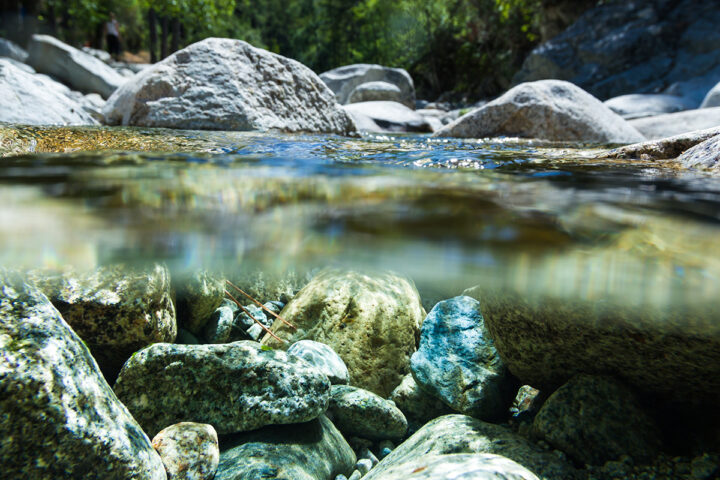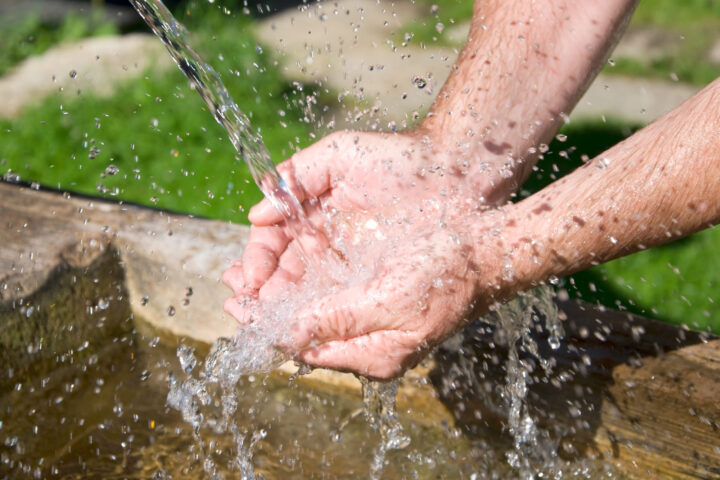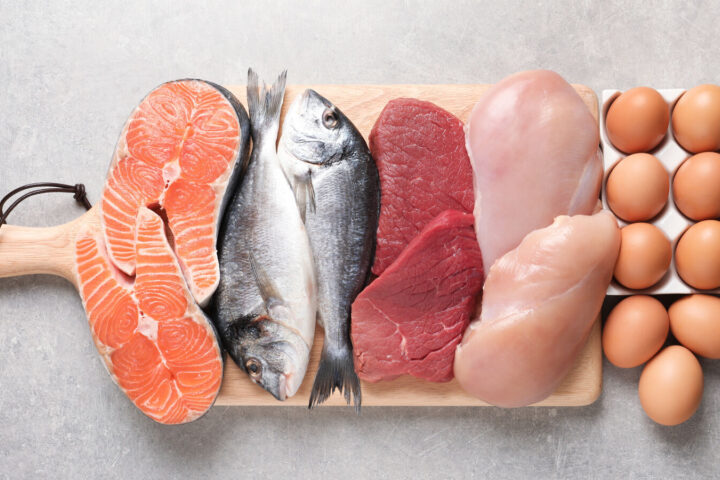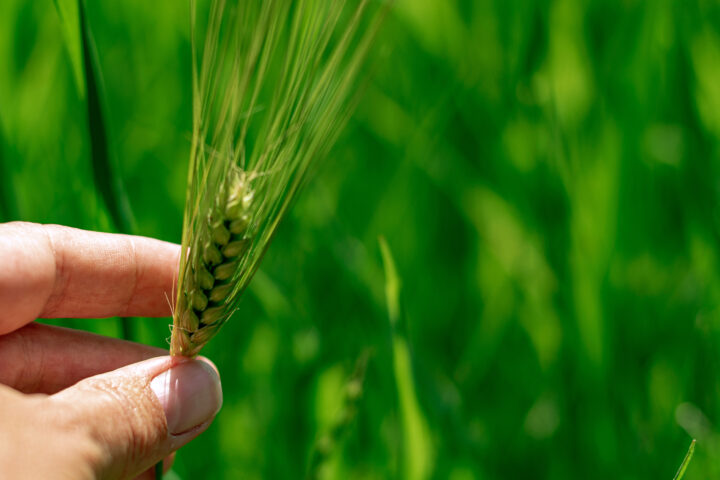
Drink water without hesitation
Various mineral waters were tested for purity for the French consumer programme «A Bon Entendeur», Residues of degradation products of the pesticide chlorothalonil were found in some of them. However, according to ecotoxicologist Nathalie Chèvre from the University of Lausanne, there is no cause for concern.
Tuesday, May 28, 2024
Nathalie Chèvre was a guest on Radio Télévision Suisse's (RTS) ‘La Matinale’ programme. The French-language SRG broadcaster asked the ecotoxicologist to categorise the results of the investigation by the consumer programme «A Bon Entendeur». Her verdict is clear: «The permitted pesticide levels in water are disproportionate to the toxicological effects». According to the researcher, consumers need not worry when consuming the mineral waters in question. Although harmful substances can be detected in certain drinks, water is perhaps the least of what we are exposed to.
In particular, the study detected substances that are banned in the mineral waters of Henniez, Valser, Swiss Alpina and San Pellegrino. Residues of chlorothalonil were also found. This is a fungicide that was used in agriculture. The EU banned it in 2019. Switzerland followed suit, but Syngenta has lodged an appeal against the decision.
In an interview with RTS, ecotoxicologist Nathalie Chèvre explains that there is no cause for concern regarding the residues of this product. She points out that the substance found in the affected mineral waters is not chlorothalonil per se, but degradation products «which are not known to be carcinogenic».
According to the Water Protection Ordinance, groundwater used as drinking water may not exceed the limit of 0.1 micrograms of pesticides per litre. However, the ecotoxicologist points out that this limit is no longer up to date. Ultimately, the limit value says nothing about the toxicological effects. It was set in the 1980s and 1990s because the 0.1 micrograms corresponded to the performance of the analytical tools of the time. In other words, it corresponded to what could be detected at the time. It is not a limit value motivated by health concerns.
The limit value has nothing to do with the risk of poisoning. According to the researcher, the standards are problematic because «a water can be above this standard without there being a health problem». The scientist also points out that it is not dangerous to drink bottled water or tap water in Switzerland. And she adds: «Before we look at the water, we should look at what's in our food or cosmetics».
When asked about the pesticide residues in mineral water, another expert reacts in a relaxed manner: «We are aware of these results and they correspond to the controls we carry out», Christian Richard, cantonal chemist for the canton of Vaud, comments to «24heures» and reminds us that Vaud's mineral water continues to comply with food law.
Kindly note:
We, a non-native editorial team value clear and faultless communication. At times we have to prioritize speed over perfection, utilizing tools, that are still learning.
We are deepL sorry for any observed stylistic or spelling errors.
Related articles

Chlorothalonil – communication with cost consequences
Once upon a time there was a canton in Seldwyla. In order to better regulate access traffic to a larger town, the canton decided to install so-called "gatekeeper systems" on the access roads, i.e. traffic lights that stop private traffic and thus access to the town by means of red lights when traffic in the town itself comes to a standstill.

Inspection report calls pesticide ban into question
On 12 December, the federal government announced the ban of the fungicide chlorothalonil – although a report classified two degradation products as «not relevant».

"Swiss water is in a bad way."
That's not actually true. Our surface waters, groundwater and drinking water are in very good condition. Our water quality tops international rankings. There cannot be any mention of poor Swiss water quality.

Scientists urge common sense
The second swiss-food-talk was attended by three internationally recognised experts from the fields of toxicology, water protection and food safety. They discussed the handling of limit values and the partly wrong interpretation in the public discourse. The scientists pleaded for more objectivity.
Content in German

Why Strict GMO Regulation Stifles Innovation
New breeding techniques such as CRISPR-Cas are considered key to developing resilient crops, stable yields and reducing the need for plant protection products. ETH professor Bruno Studer warns that overregulating these technologies strengthens precisely those large agricultural corporations that critics seek to curb, while excluding smaller breeders and start-ups from the market.

A Superfood with Benefits and Challenges
Sweet lupin is Biovision’s “Superfood of the Year 2026.” It delivers high protein content, improves soils and supports biodiversity. Yet a closer look at agricultural practice shows that without breeding, crop protection and innovation, even this superfood remains a challenging crop.

Sales bans due to PFAS: Should we be worried?
After spectacular sales bans on fish and meat due to PFAS contamination, consumers are asking themselves: How dangerous are these substances really – and what can still be placed in the shopping basket without concern?

How German Experts View New Breeding Techniques
In hardly any other country is the idyllic image of organic farming cultivated in the public sphere as carefully as in Germany. Naturalness and rural authenticity are powerful mental refuges for many Germans. Against this backdrop, it is hardly surprising that resistance to new breeding techniques is strong – and that ignorance about the realities of organic farming sometimes appears almost deliberate.

